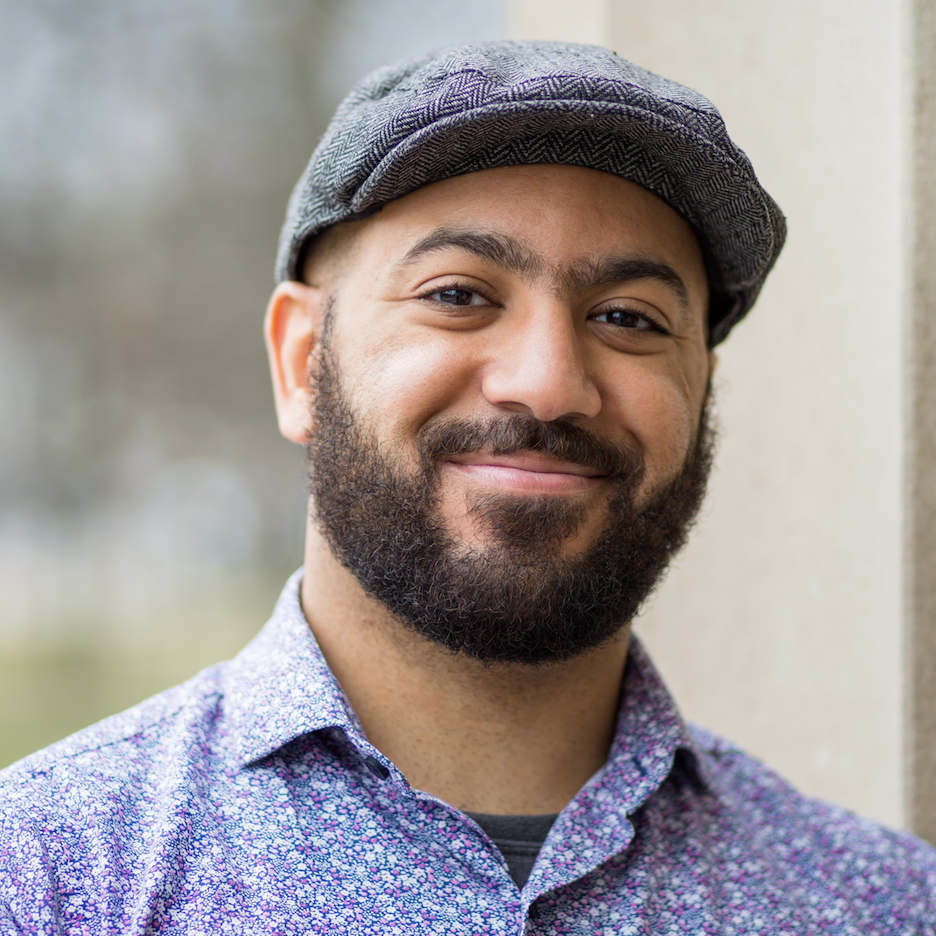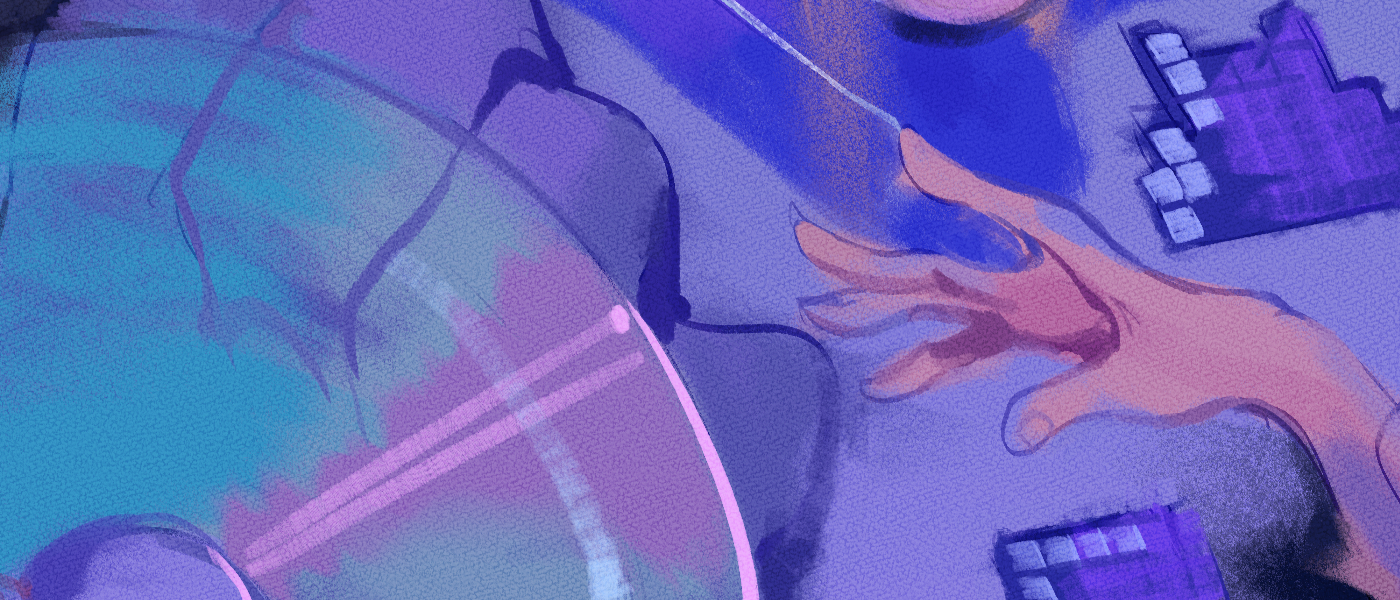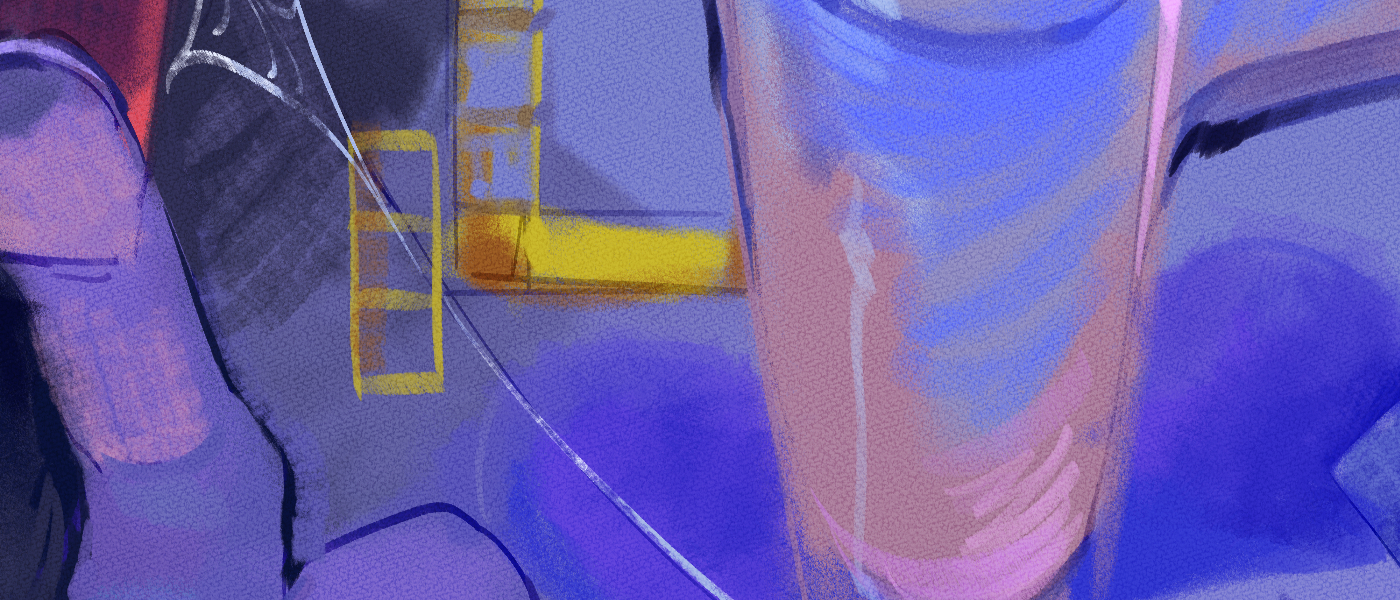⧫ ⧫ ⧫
Most bookworms have lived the image: bedtime, the encompassing covers, a flashlight sparking a world. In the image, your small hands hold, of course, a book, but consider you had fallen out of love with reading. That’s why you started to write, to try to find once again that rapture of language that pulls you into something bigger than yourself, that you knew could happen on the page.
That rapture had been pulled back to the ground when you were no longer being taken regularly to the library, where you’d watch each enormous stream of water from the iconic Henry Ford Centennial Library fountain as your aunt drove around to the parking lot in the back, where you’d—if you had one on you—prepare to toss a penny in the smaller, stiller fountain inside, where you’d learn the pride of holding your own library card. When you later lost interest in the books assigned at school because you could rarely find yourself or anyone like you in them. When you got tired of reading the increasingly-decrepit hand-me-down picture books that lived in your basement that you felt you’d outgrown—not in terms of age or maturity or reading level, you didn’t care much about all that, but because it felt there was barely any surprise or wonder left, because you had re-read them so many times you had them more-or-less memorized.
So the light wasn’t a flashlight but a worm light: a silly-straw-looking thing that barely did its job plugged into the side of the plastic that met your hands in lieu of pages: a GameBoy Pocket, later graduated into a GameBoy Color, then graduated into a GameBoy Advance SP, which would finally no longer need the detachable light.
By the time you graduated high school, how many books had you—as a teenager—really cared about, or even remembered? At home, once you were old enough, you’d read what seemed interesting from random shelves at home: mostly S.E. Hinton, The Outsiders, which you liked, and the follow-ups That was Then, This is Now and Rumble Fish, which you didn’t. As a studious kid taught to be devout, you’d spent countless hours with the Bible in various versions: New International, King James, The Message, The Amplified, a New Century devotional study Bible that was a gift from your mom. Later into your teens, you’d start to read poetry, but at first mostly just from figures you already knew: Tupac, Alicia Keys. As for books assigned at school (mostly novels, naturally): how many had really spoken to you? Maybe three or four? You liked The Day the Earth Stood Still though you barely remembered it. You didn’t love reading Othello but you did love talking about it. You were intrigued by Lois Lowry’s The Giver—its grappling with pain and memory and responsibility—though you can’t remember if you read that for a class or just on your own after seeing it on a list somewhere, trying to find more books you’d actually care about. Sharon Draper’s Tears of a Tiger you loved, despite your frustration with the ending, and it taught you that a book could move in multiple modes at once, could inhabit a chorus of diverse voices. Baldwin: The Fire Next Time. That was the one that showed you the power of what a book could be—how a book could guide you, gift you tools through which to experience yourself and the world differently, with sentences that felt satisfying in their insight and syntax—that made you really want to not just write but to be a Writer.
But the list, by nature of being a list, is finite. The worlds you spent time with in front of the TV, on the Super Nintendo because that’s what your older sisters had, the Nintendo 64 that you won in a contest, the PS One you saved up for who knows how long for, and later after some notable shifts in your family’s financial situation, the PlayStation 2, Nintendo Wii, and PC—these felt to be an infinite number of infinite worlds.
So at school, when you missed stories the most, in whatever free time you had, you wrote things that you would actually want to read. Mostly, this meant a lot of bad fanfiction—Mega Man, Sonic the Hedgehog, whatever else you were obsessed with at the moment, desperate to spend more time in these worlds with characters you already knew and loved. Your hunger for stories was turning you into a writer.
And at home, often as soon as you were done with your homework, you played games, and when you were in your bed or in the backseat of a car or wherever else, you played on handheld consoles games that often required strategy and featured as much reading as they did gameplay: Fire Emblem, Advance Wars, Mega Man Battle Network, Kingdom Hearts: Chain of Memories, Harvest Moon.
Despite the late 90s and early 2000s not quite yet being an age of commonly accepting video games as art, these stories had all the capital-T great themes—man vs.nature, man vs. technology, race, class, love, death, good vs. evil—usually not quite yet with the depth or nuance that could be found elsewhere, but—perhaps more importantly—in worlds you could both consume and be an actor in. And thus, these were the stories you gravitated toward, that made you want to create.
You’d learned to resent literature, but you wanted to love it, wanted to love it how you used to, love it the way you loved reading dialogue in your video games, so until you could find that again these games were greater models for narrative than any short story or book.
These were so many of the moments that occupied your imagination, that sustained your curiosity and development: Your happy marriage to Popuri in Harvest Moon. Your exploration of the internet as a physical space in Mega Man Battle Network. Journeying alongside Fire Emblem’s three protagonists: Lyndis as she mourned the genocide of her people, traveled away from her homeland learning to become a leader; and Hector, the younger brother of the leading noble of Ostia, whose sense of duty led him toward what was right even if it wasn’t the norm nor the law; and Eliwood, a character who embodied a trait you also learned from your father, that if you are in a position to help, then help.
In these narratives the protagonist was you. The character and the self blended. You could be, could become—albeit temporarily—something and someone else, and then—more permanently, because the characters would become part of you—something and someone more.
The hobby quickly became obsessive, unsustainably so. Your mom would make you sell your Pokemon games and forbid you from playing after a few months of you being so enamored you’d play during church. You would wonder if the screens were damaging your eyes. You would worry you weren’t being productive enough, that you should have been spending more time reading or praying or practicing martial arts between your twice-a-week classes.
But when else, other than gaming, did you have such a clear sense of who you were? of what joy could be? of a feeling that made you think I want to live the kind of life that feels like this?
⧫ ⧫
In grad school, you tried to establish a new life for yourself. A life closer to what you wanted your life to be, a self closer to what felt like truth, further away from how things should be. You’d spent much of your time—for most of your life, really—being very miserable, and very repressed, often more so than you were willing to admit. But distance allowed clarity, allowed a facing of honesty. By then, you’d learned language for depression and anxiety attack, for code switching and assimilation. You’d discovered you wanted to teach. You’d rediscovered your love for reading—in part through finding books and writers who were the ones you needed to find, the ones you weren’t quite sure were out there, and in part through expanding your toolkit for how to appreciate reading (though you’d always continue to wrestle with the literary canon—the value placed on a cishet- and white-centric body of books you were expected to care about if you were really serious about literature). You knew even more than ever that you wanted to keep writing.
Your desperate attempts to maintain and develop your faith, of further study and trying to find Christian community, ultimately led you away from it. You would hold on to the stories, the knowledge, the wisdom, but with a critical relationship divorced from religious belief. You were afraid but never more free, never more honest. That freedom allowed you to admit to yourself and to others that you’re queer. For then, only in terms of sexuality; one step at a time, more would get sorted later. You had so much to learn, so much to unlearn, so much hurt to feel and process, so much mourning to do. You knew that Christian theology said that you must die to yourself and be born anew in Christ. But this, what you were finding, were trying to build, was a dying of a version of self, too. Was being born again.
You were taking stock: reevaluating your life, figuring out how to move forward—though also trying to perform the equivalent of letting your past self fall to its doom, losing one stock—one life—as you reformed anew. (“Can I ask why they’re called stocks instead of lives?” the video game streamer Hungrybox was asked once while playing Super Smash Bros. on stream to which he responded, “Because Smash players have no lives.”)
And you were both continuing to play games and beginning to write about them, learning about ekphrastic poetry: poetry about, responding to, or inspired by art. You didn’t care if others thought games were art or not; you operated under the understanding that they are. You brought poems to workshop about Crash Bandicoot and Borderlands 2 and Pokemon. Having lapsed in keeping up with new consoles for two gaming generations, you bought yourself a PlayStation 4 as a birthday/grad school graduation gift. You knew many people would find the idea of an adult so invested in video games silly and frivolous just like there are people who would find the idea of an adult writing poems silly and frivolous. That didn’t matter to you, though. You kept finding ways to find yourself, to become yourself: queer and agnostic and Black and brown and, as much as you somehow still feel weird using the term for yourself: a gamer.
⧫
In games, there is a conflation of you the player and you the character—an entity with which you the player share experience—each you holding some power over the other: player holding power through the controls, character acting as a conduit of the game’s construction which holds power over you through its constraints. Symbiosis.
Here, I want to break down that conflation—speak to you, dear reader, not only through inviting you into the lived experience above but through a conversation.
Do you, like me, whenever I play a game with limited stocks—limited lives—have that moment when you’re on the last one and therefore a little more careful, a little more cautious, more intentional? I want to hold us in and to that intention, that care, that awareness that yes there’s a place where I stop and you begin, but still we are (in the words of Emerson) “part and particle” of an inter-related whole—and (in the words of Brooks) “each other’s / magnitude and bond.” I want us to possess that visceral awareness of each other’s mortality and fragility and beautiful presence—each a protagonist with one losable life we’re figuring out how to use.
And as we do: I want to take this life as seriously and unseriously as I can.
I want a broader conversation of what kinds of reading (and living and experience and spending of time) we consider “worthwhile.”
I want to pay attention to memory. To wonder and curiosity and play. I want to be attentive to the ‘“how” as much as or maybe more than the “what.” In the crossover and intersections of genres and media. In saying, here’s this way to look but here’s this other way, too. Here’s this self and here’s also this past self and here’s where they overlap, they split, they echo, they sacrifice. Here’s how I can honor all my lives and versions and senses of being.
That child in that Detroit bedroom was curious, was seeking love and joy, seeking to be transported to places worth their time and attention. But I know, now, that child was hiding, too; but in that hiding they found things to bring with them into the open. Even though I know, if they met the current me, they wouldn’t be proud—wouldn’t yet be equipped to be so—I want to show them how their world and worlds can and will expand, how their priorities and values will shift, show them their fears and teach them: you must look those fears in the eye if you’re to beat them, to kill them.
I want to hand them that knife. I want them to learn to want to be, in the words of a poem a student of theirs will much later write: “alive, and glad to be so.” I want them—as I want you—to keep practicing at being brave.
I want to hold in my hands as many truths as I can, and while I’m at it hold a controller, too.




